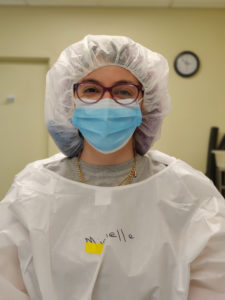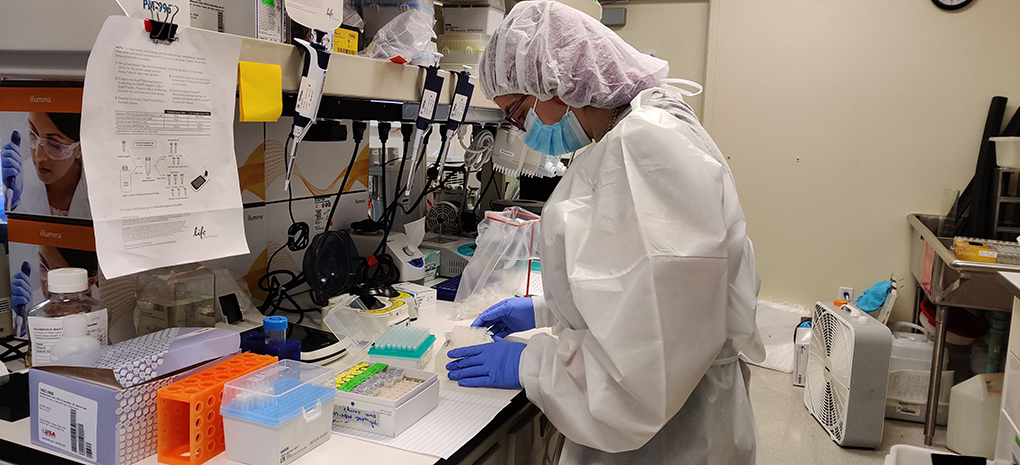Essential Humanism: Profiles of Courage in a Pandemic Part VI: Michelle Loprieno
 Michelle Loprieno
Michelle Loprieno Tell us about your job. What are some of the ways it’s changed during the pandemic?
I am a research technician at the Fred Hutchinson Cancer Research Center in Seattle, Washington (aka Fred Hutch). Before the pandemic, my main research focus was on curative therapies for herpes and hepatitis B. My boss, Keith Jerome, is also the head of the virology division in the Department of Laboratory Medicine at the University of Washington. Once the pandemic started, I was given permission to help with COVID research at the UW virology lab, and I have been helping with SARS-CoV2 sequencing ever since. We use the sequences of each viral genome to see how the virus is evolving as well as tracking where sources of transmission originated. I have learned so many new things overnight!
How do you feel about being an “essential” part of the workforce?
I have wanted to be a scientist my whole life, so it is a huge honor to study something so important. I have suffered from occasional compassion fatigue because some of the things going on in the world are so terrible and not everyone listens to the advice of scientists. We work really hard to try to improve global health.
Are you required to wear personal protective equipment (PPE) while at work? Is it provided to you?
In addition to the normal precautions we already take in the lab, we are now required to wear surgical masks at all times. All PPE is provided to us. We’re also required to do an online symptoms screening before entering work each day.
What’s something your employer is doing well during the pandemic?
The UW Virology Division is working hard to make a COVID test available to as many people as they can. Fred Hutch was one of the first workplaces in Seattle to require employees to work from home while they focused on making labs safe for scientists to return to work.
What’s something you would change to make your work environment better or safer during the pandemic?
My employers have honestly done a great job keeping us as safe as possible. Elevator buttons and door handles are regularly disinfected and my coworkers are great about making a schedule so we can maintain appropriate social distance. The only thing that would help at this point is just more space or having my own office.

Photo courtesy Michelle Loprieno
How does being an essential worker affect your family? What are their reactions?
My family was really concerned for my health when they first heard I was moving to COVID research but were relieved when I explained that I’m not working directly with patients.
How can the public make your job easier and/or safer?
The best thing you can do to help us is to remain healthy by socially distancing and wearing a mask.
What kind of positive change do you hope comes out of the pandemic—for you, for society at large?
It’s my hope that more people will get vaccinated. Vaccines are one of the most powerful weapons we have against viruses. I also hope that employers will encourage their workers to stay home when they’re sick by providing better sick leave and other policies.
Does a religious faith inform your values?
I am an atheist so I believe it’s important to treat the life you have and the lives of others like it’s the only one you get.
Do people you interact with on the job express religious beliefs to you or in other ways express their values?
My colleagues don’t talk about their religion much. They express their values by having lively discussions, collaborating, and being passionate about their research.
What do you miss the most about your pre-pandemic life?
The ability to travel. I had several trips cancelled this year, including my honeymoon. Almost all of my family lives on the East Coast and I couldn’t be there for them when a family member passed away, which was really hard.
